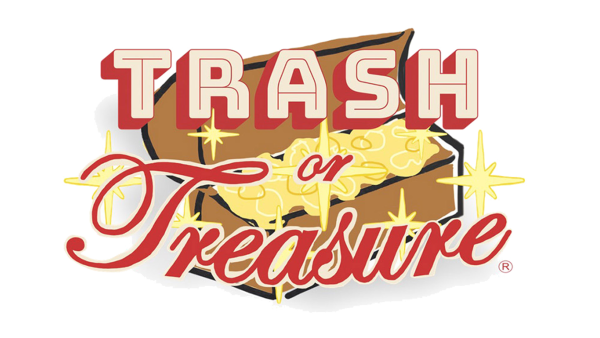Happily ever after
Fairy tales teach life lessons, capture imagination
One day when I was at the public library with my little sister, I saw a display of fairy and folk tale collections. I stopped to look through the books to see if there were any I hadn’t heard of or any with amazing illustrations. Then, much to my horror, my sister held up a copy of “Jack and the Beanstalk” and asked me, “What’s this?” It was at that moment I realized that I had totally failed my little sister.
I love fairy tales. I grew up reading them, and I love reading different versions of each story. Sometimes the changes are minor, other times, the whole story ends up being changed. It could be the story of Cinderella in another culture or where Cinderella goes to the ball three nights instead of one. Because of this, I was very disappointed when I realized my sister was not familiar with some of the most beloved fairy tales. With all the negativity in society today, she needs fairy tales.
Fairy tales are extremely important. They tell creative and fascinating stories, and they teach major life lessons in an entertaining way while inspiring amazing works of various forms of art.
My favorite fairy tale is King Thrushbeard. It features a princess who is NOT perfect. After insulting all her potential suitors, her angry father, the king, marries her off to a beggar. As a beggar’s wife, the haughty princess loses her pride and learns to be grateful for the things around her.
At the end of the story, she finds out that her beggar husband is actually one of her refused suitors in disguise – the rich King Thrushbeard. This story features many details that I love. It shows a princess with a bit more depth and character than in other fairy tales. She actually experiences a character arc as she learns to treat others with kindness and not be prideful despite her riches.
Despite all these good qualities of fairy tales, some people think that they should not be read to children. They say that they teach harmful gender stereotypes. They say that the prince shouldn’t always do the saving and that chivalry is wrong. They say women in fairy tales are only valued by their looks: if they’re beautiful, they’re good, and if they’re ugly, they’re evil.
Fairy tales, these people claim, are sexist and support stereotypical, patriarchal gender roles. Young children who read them might have the audacity to believe in these roles and will grow up to be biased people. People claim Cinderella can’t be a good role model because she is meek and kind, and her reward is to marry Prince Charming.
Why can’t I have Cinderella as a role model for the rewards of being kind? I want to be a homemaker, just like Cinderella. I believe in the power of hard work to bring blessings in life. Sure, I hope my family isn’t as awful as the evil stepmother and stepsisters, but I identify with Cinderella’s desire for love and family.
What is the problem with chivalry? If the problem with sexism is men not respecting women, then isn’t chivalry the solution to the problem? A gentleman holding doors open for women does not do so because he thinks the women are weak (physically or otherwise), but because he respects them and wants to be courteous to them.
I WANT men to hold doors open for me! It is sweet, attractive, and shows that they are willing to put others before themselves, not because they think they are better, but because they respect me. There is too little respect in our society, not too much. Maybe the best way to find some unity is for us all to be a little kinder to each other and have a return to good, old-fashioned manners and chivalry (and romance!!!).
People complain that all the heroines in fairy tales are young and pretty while the ugly and/or old women are evil. Yes, there are some evil old women, including Cinderella’s stepmother or the witch in “Rapunzel.” But what about the Fairy Godmother in Cinderella, likely the most well-known fairy tale? I have always pictured her as a kind, grandmotherly figure. Am I expected to believe that the Fairy Godmother is secretly evil? NO!!! Mother Holle is another example of a good old woman. In the fairy tale bearing her name, she rewards a virtuous young woman and punishes her lazy stepsister. There are also evil young women, including Cinderella’s stepsisters and the servant in “The Goose Girl.” There are even pretty evil women. After all, the Evil Queen in “Snow White” was “the fairest of all” for years until Snow White grew up and surpassed her beauty.
People also complain about the “damsel in distress” trope and claim that fairy tales are sexist because the men always save the women. This is simply not true. In many fairy tales, the hero would not be successful without the assistance of the heroine.
In “The Singing, Springing Lark” (a Beauty and the Beast-type story), the heroine saves the cursed prince. An evil princess/sorceress causes him to forget the heroine and forces him to marry her. The night before the wedding, the heroine is able to save her prince from the other woman. It’s a sweet story, and it’s one of my favorites. And in this story, it is the heroine that does the saving, not the hero. Some other stories where the princess does the saving are “The Frog Prince” and “Rapunzel.”
People also say that fairy tales teach young girls that they have to be rescued by Prince Charming and get married to be happy. People say this denies girls of true freedom to make their own choices. Well, I AM tired of people telling me what I can and can’t do. I am tired of people telling me, as a girl, that I can’t and I shouldn’t. I can’t be happy without a solely career-focused life. I shouldn’t want to get married. I shouldn’t want to raise children. My success should not be defined by my family.
Well, I am going to take a stand! I am a strong, independent woman, and I will fight for what I want. I know what I want to do with my life, and I know how I will get there. I am extremely ambitious and won’t settle for anything less than my highest ambitions.
These are my goals in life: I want to get married, I want to have a lot of children, and I want to raise them to be good, independent adults who can withstand life’s challenges on their own but still want advice and love from me.
In a world where everyone supposedly cares about women’s freedom and wants to support women’s ambitions, why is it that my freedom and my ambitions aren’t accepted today in this supposedly tolerant society?
I love fairy tales. They are entertaining stories I’ve grown up reading. They inspire me to make better choices, to be kind, cheerful, hard-working, and honest. Fairy tales also show me examples of women who get the rewards they deserve for their good character. They provide me with role models from the independent princess rescuing her cursed prince to the poor girl becoming a princess because of her kindness. And, despite all the criticisms against them, the world needs more fairy tales today.
Your donation will support the student journalists of Bryan High School. Your contribution will allow us to purchase equipment and cover our annual website hosting costs.


